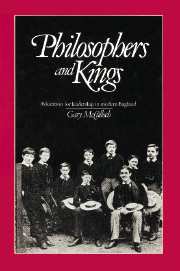The victory of the Labour party in the British general election of July 1945 was preeminently a triumph of Left over Right. Labour won 393 seats, while the Conservatives, despite the prestige associated with their wartime leader Winston Churchill, won only 213. As the election results came in over the radio on July 26, the veteran Labour M.P. James Chuter Ede “began to wonder if I should wake up to find it all a dream.” By the end of the day, he was moved to record that the outcome of the election was “as great as 1906 … one of the unique occasions in British history—a Red Letter day in the best sense of that word.” At the same time, however, the election was of crucial importance in the development of the Left itself, especially with regard to the relationship between the Labour party and the Left as a whole.
I Labour's decisive election victory has commonly been interpreted as the climax of a long and gradual rise to power. The historian Charles Mowat was quick to point out that its success was “the culmination of a political movement now more than sixty years old.” The historic mission of the Labour party, its “fifty years' march” from tiny pressure group to majority government, was the subject of several Whiggish treatises in the following few years. Over the last decade, moreover, the increasing recent difficulties of the Labour party have tended to highlight the comparative steadiness of its earlier growth, although they have also stimulated greater attention to the early causes of later conflicts.
